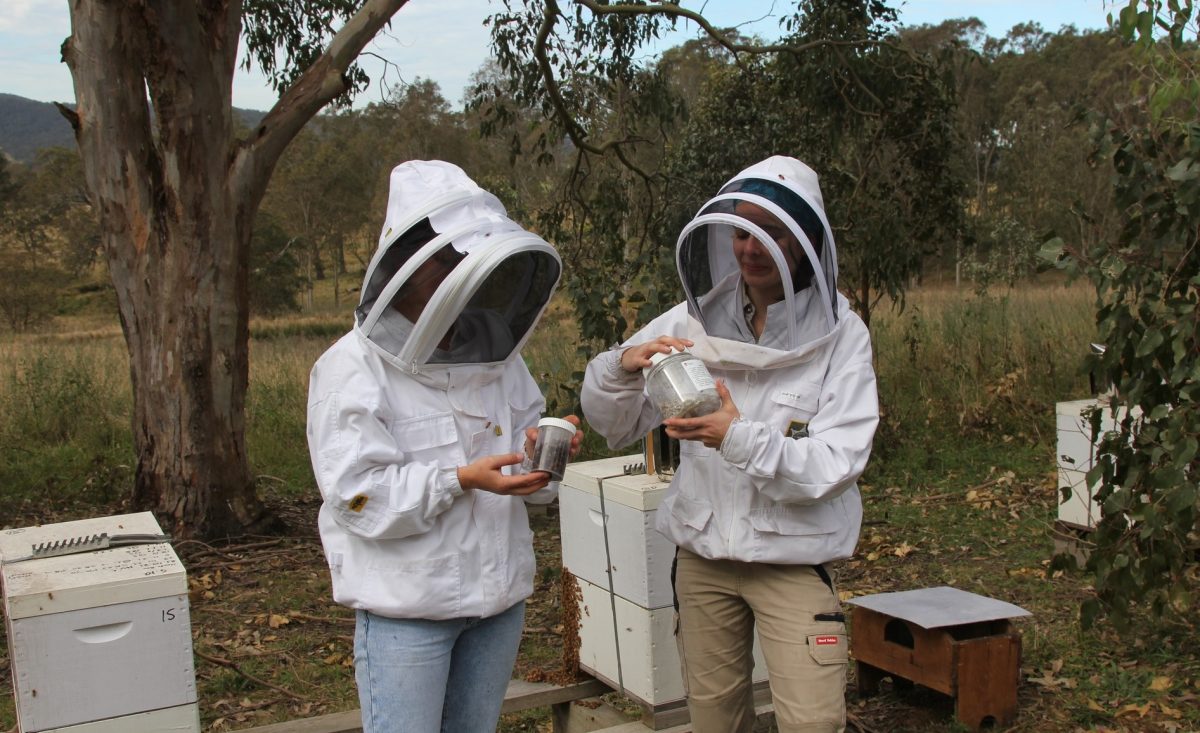
The NSW Nationals are calling on the State Government to acknowledge the risk to bees and food sources from varroa mite. Photo: NSW DPI Biosecurity.
NSW Coalition members are calling for more support for beekeepers dealing with varroa mite, as they move tens of thousands of hives to Griffith for the annual almond pollination season.
NSW Nationals leader Dugald Saunders and Upper House MP Nichole Overall met beekeepers and growers in the Riverina this week to discuss the damage caused by varroa mite.
“The industry is struggling with rising costs and labour for treatments to manage the invasive pest,” Mr Saunders said.
“There are also concerns that mass staff cuts at the Department of Primary Industries and Regional Development (DPIRD), combined with two years of neglect in biosecurity funding, will weaken the state’s frontline protections.”
Mr Saunders said the work of bees could go unrecognised by many, and the threat of varroa mite couldn’t be overstated.
“Bees are responsible for one in every three mouthfuls of the food we eat, and varroa mite is their biggest threat, yet the NSW Government is not taking it seriously.
“Instead, it’s axing vital jobs from the DPIRD biosecurity team, leaving the industry vulnerable at such a crucial time.
“This is the most significant pollination event of the year, and we need to see more support for beekeepers who are doing it tough, like subsidised treatments, reducing or removing fees to access more public land, and more boots on the ground.”
Mrs Overall said this time of year was make or break for local producers.
“The almond industry is one of the largest consumers of pollination services in Australia, and growers only have a very short and critical window to get what they need,” Mrs Overall said.
“The Minns Government should be doing everything it can to support farmers of all kinds who are also feeling the impact of the extremely dry conditions we’ve seen across the Riverina.”
NSW Apiarists Association president Matthew Skinner said the impact of the varroa mite had been enormous.
“Not only is it costing more for beekeepers to run their hives, but it also requires more work to be able to treat them, which is putting the industry under a lot of pressure,” Mr Skinner said.
“Beekeepers don’t want a handout, but just some assistance to help make ends meet, and that also needs to include attracting more people to fill a looming skills shortage.
“That could mean pathways or apprenticeship-style courses for young people, so the industry has a real future.”









